July 2nd, 2022: Greetings from Seattle. I was off last week for my sabbatical and attending a conference in Portland. I ran into a bunch of internet friends, got to meet Tiago Forte in person (who gave an incredibly good talk on his book Building A Second Brain), and participated in a group event to break a world record of the most number of people dressed up as inflatable dinosaurs (380!). This is my first world record, thanks for asking.
I dropped two new podcast/videos in the past two weeks:
You ditched the traditional path… why haven’t you ditched your traditional health insurance?
Experience the freedom and affordability of cash payments and community-funded healthcare with CrowdHealth.
Use promo code “Boundless” during sign-up for a special discounted subscription offer.
#1 The Great Resignation Might Just Be Boomers Dropping Out Of The Workforce?!
I’ve had no less than twenty-five people ask me what I thought about the “great resignation” over the past six months.
I don’t know how to answer. The “great resignation” means everything and nothing. For some people, it’s about people quitting their jobs and abdicating responsibility. For others, it’s about people quitting to become self-employed. And for others, well, they don’t have a definition - it’s just something they’ve heard over and over again.
For me, I think it’s a media narrative that took off based on a weird combination of real things that happened in the fall of 2021: an explosive crypto ecosystem attracting new talent, a dramatic spike in the quits rate from the summer of 2021, and a dramatic increase in the number of people willing to talk publicly about their relationship to work.
What does the data say?
Let’s first start with hospitality, which has the highest quits rate of any industry and had a large spike in 2021. Here is what the quits rate looks like over the past 15 years:
As you can see there was a massive drop in quits in 2020 followed by an even larger spike in 2021. However, if we map to the overall trend, the spike was not that dramatic. The two-year increase from 2019 to 2021 is only about 5% higher than from 2017 to 2019.
A big factor likely nudging a lot of quits is increasing wages. If we look at the following chart we see that the hospitality and trade sector saw accelerating wage gains starting in 2020:
Increasing wages is usually somewhat linked with increasing demand for workers which means you’ll see more people shifting jobs.
Looking at the other industries, we see similar things happening with increasing wage increases and increased quit rates in 2021.
A few thoughts on the data:
Traditional knowledge work jobs (information, financial, and business & professional services) don’t appear to have unexpected quit rates based on historical averages or beyond any expected bounceback from 2020.
Looks like finance is one of the best industries at getting people to stay? (just one more bonus!)
People seem to really like their mining and logging jobs, and more than before?
Three industries: manufacturing, trade, transport and utilities, and education and health services do stand out - they didn’t have a dip in 2020 in quits but still had a massive increase in 2021.
Let’s look at one of those, manufacturing. Here is the historical chart:
Something is happening here. Yet this isn’t really being covered. A lot of the “great resignation” coverage is focused on knowledge work jobs - likely because that’s who journalists are used to dunking on.
I went down a rabbit hole trying to find explanations of this spike and came up empty. Most of the ones I found were attempts to hijack the great resignation meme for their own preferred policy that they wanted to push. To be honest, I’m not quite sure what’s driving it.
This brings us to something that might partially explain this…
Boomers Are The Ones Quitting
Zooming out on the labor economy, there has been a drop in the labor force participation rate.
Yet it is not happening in what is deemed “prime-age” people between the age of 25 and 54. This employment rate is about equal to where it was in 2019, which means most of the people that temporarily dropped out of the workforce or might have left for other reasons are back in the workforce.
Yet if we look at the boomer generation we start to see a big drop in employment.
As someone who coined the term “boomer blockade” I’ve been writing about how the boomer generation, which has been one of the most dominant cohorts of the workforce for more than forty years (see below) just won’t retire.
2020 seems to have changed that and across a number of metrics I showcased in that original article, a number of factors seem to show that the workforce is starting to get younger and the boomers are finally passing the baton.
We see this when looking at the 55+ employment rate, which has dropped by around 1-1.5% and has not bounced back.
Getting more specific about actual numbers, my best estimate based on population data and total employment numbers, is that about 3 million 55+ people dropped out of the workforce in the last two years.
This is likely a mix of reasons: retirement, early retirement, or temporarily unemployed. It will be interesting to see if this population returns to work over the coming year. In my book, I detailed how satisfaction with retirement has been tanking and anecdotally at least I’m hearing reports of retired parents (including one of mine) returning to some form of formal work.
I Do Think There Is A “Great Contemplation” Underway As Part of a “Great Reshuffling”
A phrase I’ve been using when people ask me about the great resignation recently is the great contemplation. I would define it as the following three things:
A shift in common knowledge away from the industrial default path script as the best way to orient your life, especially among younger people.
An increased acceptance of public conversation about our over-identification as workers and options such as sabbaticals and part-time or remote work.
An increased desire among knowledge workers to want to escape their existing success paths. However, many have not yet taken action on this desire due to a lack of obvious socially acceptable alternatives or not being ready yet.
My hypothesis these three trends will continue over the coming decade and will contribute to a refactoring of our collective beliefs about employment and work. Yet at the individual level, which I am most interested in, I think many of these shifts will happen slowly. The time from awakening to bold action seems to happen in years not weeks. My book details my own slow shift which took about 10 years.
The background to this great contemplation is a massive shift from the physical to the digital. The best way I’ve heard this described is as a “great reshuffling” which I first heard from Jim O’Shaughnessy on the Modern Wisdom pod (great episode!)
“we’re moving being used to and having skillsets for the physical world, and moving to the digital world….time, space, and geography are collapsing.”
His argument is that the economy is moving toward a digital-first way of working and that every industry is becoming tech-driven (including sectors like manufacturing, which will likely become even more important). This means that the companies and individuals that will thrive and succeed will be different than in the past. For navigating this great reshuffling, he suggested the following:
“I would learn to be endlessly curious”
“consume a lot of information” (but stop watching the news!)
“don’t become prematurely certain”
“think like an owner so you don’t have to make excuses”
This is great for some people (he also calls this shift “revenge of the nerds”) but likely bad for others. Similarly, it will be great for some industries and companies and worse for others. When I graduated college in 2007 GE was seen as a safe and smart employment option. Few people hold that opinion in 2022.
He closed with his own definition of happiness which I thought matched well my own:
“true happiness is being able to do what you want to do when you want to do it wit who you want to do it with.
+ I recently went on Jim’s podcast and talked about a lot of these ideas and it launched this week - you can find the episode here
+ He has a video essay on this topic as well here.
I am focused on building a life around exploring ideas, connecting and helping people, and writing. If you’d like to support my journey, the best ways are to:
Buy my book, The Pathless Path
Purchase one of my courses on freelancing or reinventing your path
Become a sponsor of this newsletter or podcast (starting at $100)
In addition, I recommend all of the following services (affiliate links).
Kevin Shen’s Dream Studio Cohort-Based Course (or custom studio builds)
Podia - 14-day free trial (read my review here)
Teachable - 14-day free trial
Skystra - Fast WordPress Hosting
Circle - 14-day free trial
Alternatively, if you simply just want to send me a monthly donation and encouragement to “keep going” the best way is to become a paid supporter of the newsletter (which includes free access to the book and Reinvent).
A reminder: I don’t check unsubscribe alerts and never look at my subscriber list. So if you feel like unsubscribing, you can do so below.







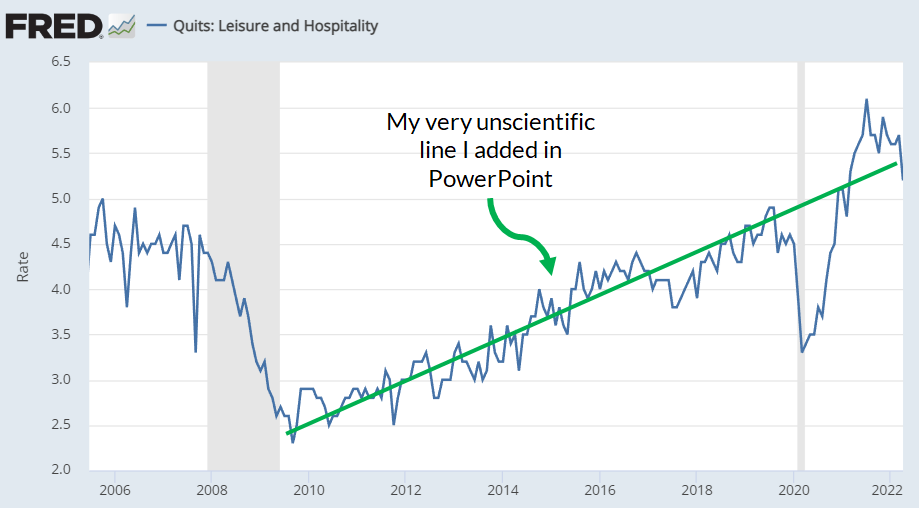
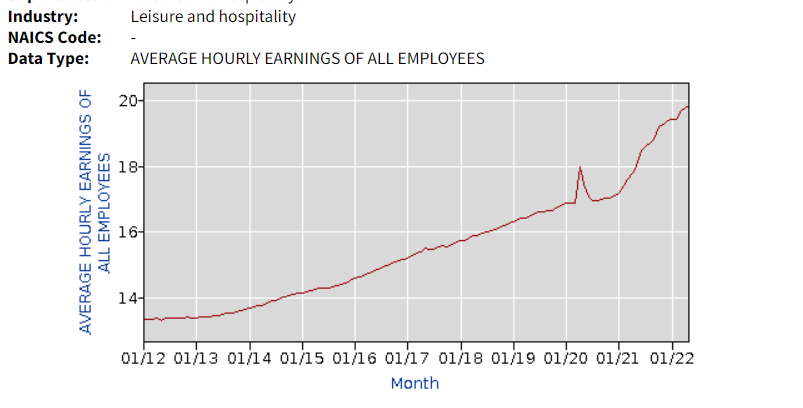
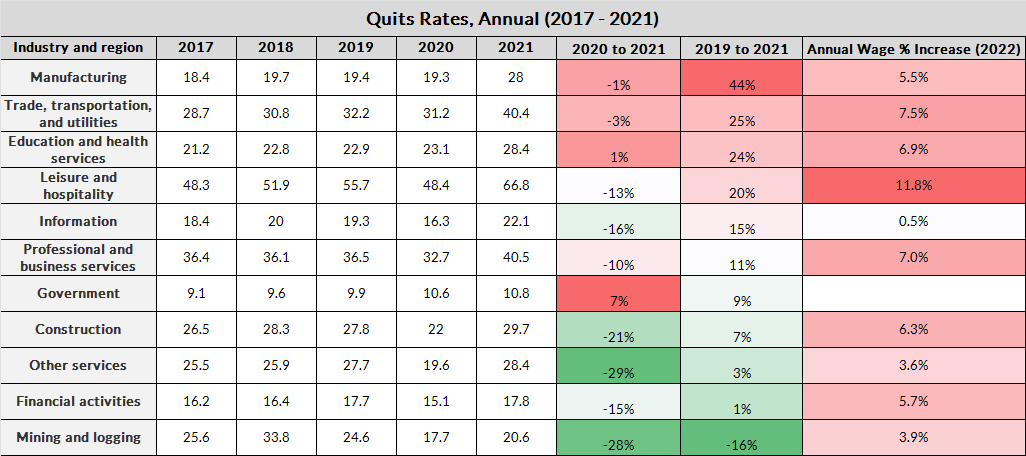
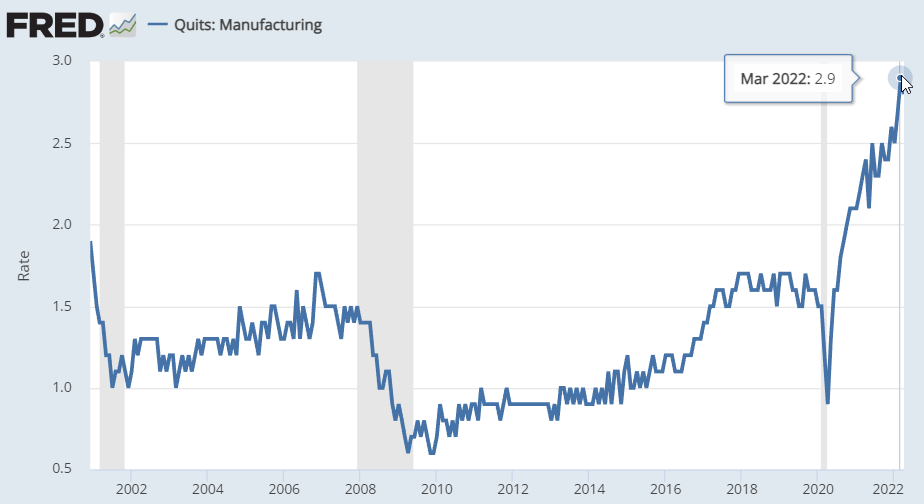
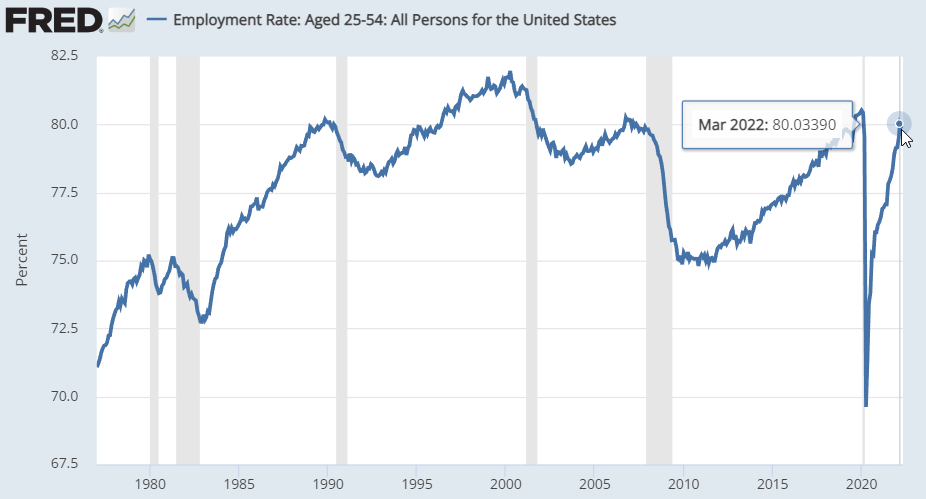
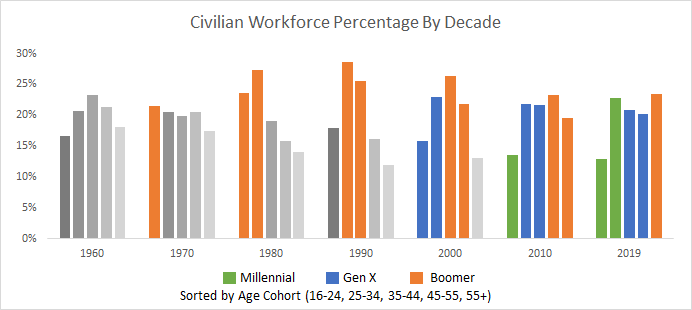
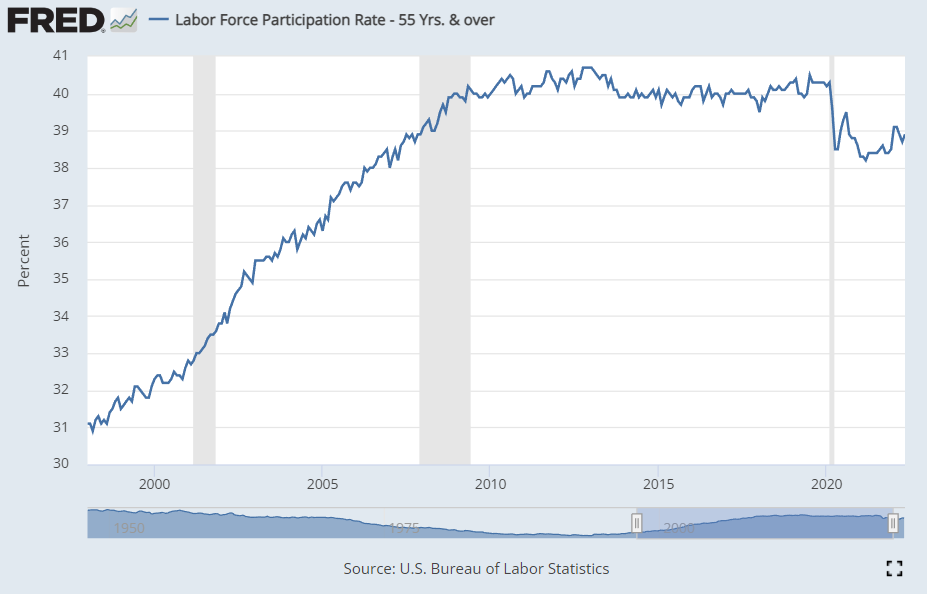










I took a look at employment stats for Italy and I came to the conclusion that there's no evidence of these Great Resignations happening. If anything the ratio between people quitting and people getting hired is coming back to pre-pandemic values.
So not only there's no evidence of mass quitting, but things are just getting back to normal after everything being stuck for over two years (also: in Italy the government basically forbid companies to layoff people during the pandemic — different subject but basically what data tells us is that people just stayed where they were, statistically speaking).
In Italy the job market is quite rigid, with people changing jobs just a couple of times during the span of their careers — when I say that I changed jobs 5 times between 2013 and 2017 they look me like I'm coming from a different universe.
So something as a the Great Resignations just doesn't make sense both under the scrutiny of statistical evidence and the cultural context.
But there's A LOT of talk about it, I got tired already of mentioning the statistical evidence, it is clear to me there's an interest in getting clicks, and, potentially, clients, by constantly mentioning the trending topic, even if it's a non-existing phenomenon.